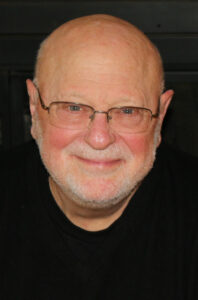By Hal Green
Pondering Prayer

Prayer moves in a continuous circle, from God to you, then from you to God. You will never know for sure who actually began a specific period of prayer. What you feel in your heart that impelled you to pray may have been proceeded by the secret prompting of God.
Yet prayer, like language itself, truly begins in God, streams from the word, which flows eternally between the beloved and the lover, along with the love itself. Prayers, like love songs, are generated in the unseen, gravity-like field of Spirit between you and the beloved, God. Thus, melodies and prayers represent mutual life, the holy “rubbing” of your soul over against God’s Spirit.
Prayer, like music, does not merely flow through us: it also arouses us, plays with us, interacts with us such that the prayer event itself can change us, as well as the prayer content. The psalms are replete with examples of the psalmist starting at one place in the opening verses of the psalm and ending in an entirely different, typically better place by the end.
In short, God secretly acts upon your heart and soul as you pray to turn you from fear to trust, pain to peace and doubt to faith. As Paul grasped, “for it is God who is at work in you, enabling you both to will and to work for his good pleasure” (Phil 2:13). So if you stay in a prayer long enough, and give God permission, God will likely change your heart to be in accord with God’s will.
Prayer often has an overt and covert content, a reason you start with, and what surfaces and affects the content and direction the prayer eventually follows. In a similar way, that often happened while I was counseling. The client(s) would begin with one issue, which would evolve into other issues during the session. Typically, the later issue(s) would be more profound and closer to their hearts. Yet if they did not continue talking, they would likely not get to the most significant subject of their heart.
Put differently, prayer knows where it is going, even if you do not, at least until the prayer has come full circle. Remember that you are word, rather than merely having words. God created you by addressing you into being: “Let there be, you!” I believe that somewhere in your unconscious is the memory of that address, along with who God is and the “who” God is calling you to be.
Your prayer words must open to and remain directed toward God, rather like flower petals before the sun. Further, let there be silent pauses between your words, to enhance your grasp of what you are saying, and to whom you are speaking. Words both establish and reveal relationships, including between God and you.
(Hal Green, Ph.D., is author of Pray This Way to Connect with God. You can contact him at drhalgreen@gmail.com.)








